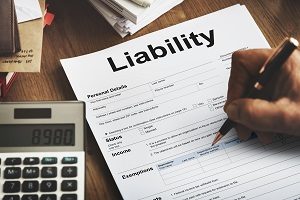Behind every successful homeowners association is a competent board of directors. Many know about HOA boards but few really know what goes on behind the scenes. What exactly are the HOA board duties, roles, and responsibilities?
If you don’t know it yet, an HOA board runs the association, occasionally with the assistance of an HOA management company. While the board may consist of 3-7 members in total, only 3 or 4 of those members will hold offices. Each of these officers has their own role to play and responsibilities to the community. Here, we hope to shed some more light on each of these roles, how they relate to each other, and how they serve their community.
HOA Board Duties Explained
Much like any organization, a homeowners association has a board of directors responsible for maintaining the community. Whether you’re a regular member of the association or planning to volunteer for a position, it’s important to familiarize yourself with the roles of the HOA board members.
1. President Duties
 The president of an organization is often its “face.” They are expected to have the final say in most decisions and are generally responsible for any actions taken. However, that does not mean they do everything alone.
The president of an organization is often its “face.” They are expected to have the final say in most decisions and are generally responsible for any actions taken. However, that does not mean they do everything alone.
In community and homeowners associations, effective presidents spend most of their time acting as facilitators and communicators among the other officers. This means they need excellent communication, leadership, and management skills. It is their job to ensure all members of the board have an opportunity to weigh-in and that decisions are always made with the best interests of the community.
The president should never act on their own and always supports his or her board. The HOA board president takes on many administrative duties. This can include the preparation of meeting agendas and moderating meetings to ensure the agenda is followed. Additionally, the president is responsible for the signing of all contracts and any other legal document involving the association. They must also co-sign all checks alongside the treasurer.
2. Vice President Duties
The HOA board vice president’s role is mainly to support the president. The VP stands in for the president in meetings the president is unable to attend or duties he/she is unable to fulfill. While not always an essential position, a vice president is a huge asset to boards that have them.
On many boards, the president may assign the vice president a task or duty that doesn’t typically fall under the responsibilities of another officer. For example, they may preside over securing bids for maintenance projects or act as a liaison with the management company.
If you choose to organize your board into committees, the vice president might also serve as the chair or representative of the president to one or more of these committees. In small communities, the role of the vice president may seem redundant. However, larger boards and communities will appreciate having the position on their boards.
Having an extra hand to fill in when needed is extremely important when there are lots to do and not enough time to do it. An effective vice president is flexible. Much like the president, he/she should be a strong communicator and can manage multiple projects at once, but he/she should also be ready to pick up slack as soon as the VP is needed.
3. Secretary Duties
 To most people, a secretary’s role isn’t as important as others. However, the truth is actually far from it. In fact, it’s one of the most critical HOA leadership roles.
To most people, a secretary’s role isn’t as important as others. However, the truth is actually far from it. In fact, it’s one of the most critical HOA leadership roles.
Aside from delivering notice of meetings and diligently jotting down the minutes, the secretary is responsible for all association records. This includes homeowner information and maintenance history.
Many associations are required by their governing documents to make these documents available to homeowners upon request. An effective secretary should be well-organized and can quickly produce any documents required as soon as they are requested.
Additionally, the secretary works closely with the president to develop meeting agendas. Most secretaries also write and send the neighborhood newsletter to keep the company up-to-date on happenings and general association information.
4. Treasurer Duties
 Treasurers handle all financial transactions of the association, both incoming and outgoing. They are responsible for collecting dues and issuing payments to vendors as needed and approved by the board.
Treasurers handle all financial transactions of the association, both incoming and outgoing. They are responsible for collecting dues and issuing payments to vendors as needed and approved by the board.
At the end of the fiscal year, they should schedule and assist with an audit of the association books with a CPA, as well as prepare the annual budget and income and expenditure report for the rest of the board. The treasurer should work closely with the management company for accounting services and financial reports.
The responsibility of the treasurer should not be taken lightly. Poor management of association funds could create distrust and conflict within the community. It can even result in legal action. Therefore, the treasurer should be well organized, trustworthy, and responsible.
Fiduciary Duties of HOA Board Members
There are three types of fiduciary duties board members are obliged to carry out. Let’s take a look at them one by one.
1. The Duty of Care
Running an association involves a lot of voting and decision-making. The duty of care asserts that these decisions must be made with forethought and caution. Board members must do their due diligence, researching every possible solution before arriving at an informed decision.
For example, if a homeowner has violated a covenant with the HOA, board members must turn to the CC&Rs for guidance. The CC&Rs, or the Covenants, Convictions & Restrictions, is one of the HOA’s governing documents. They usually contain the proper procedures when handling violations and penalties.
2. The Duty of Loyalty
 When you’re in a position of power, it can be easy to abuse your influence and manipulate decisions to work in your favor. Occasionally referred to as the duty of good faith, the duty of loyalty states that every action the board takes must be in the community’s best interest.
When you’re in a position of power, it can be easy to abuse your influence and manipulate decisions to work in your favor. Occasionally referred to as the duty of good faith, the duty of loyalty states that every action the board takes must be in the community’s best interest.
This means staying out of any decision-making process that involves yourself, whether directly or indirectly. For instance, if the board is deciding whether to replace the current security service, you mustn’t participate in the vote if your relative owns a security firm. As a board member, you must remove yourself from decisions where there is a conflict of interest.
In addition to this, the duty of loyalty also states that board members must keep personal information confidential. So if a homeowner privately confides to you that they are in financial trouble, you mustn’t tell anyone else.
3. The Duty to Act Within the Scope of Authority
While the HOA board does hold considerable power within the association, it isn’t limitless. The laws of the land, as well as an HOA’s governing documents, define the extent of the board’s authority. In other words, you can’t make or enforce a rule that conflicts with federal, state, or local laws. When new rules clash with the CC&Rs, the latter typically takes precedence.
As a board member, you must know the scope of your authority. This way, you can act within your power and avoid the risk of running into legal trouble. Read through your HOA’s governing documents and familiarize yourself with the law.
Other HOA Board Responsibilities
Aside from knowing the basic terminologies and fiduciary duties that come with an HOA, there are a few other responsibilities board members must fulfill. Let’s take a look at them below:
1. Budgets, Assessments, and Accounting
 Keeping track of the association’s financial reports is a big part of the HOA board duties. Members of the board must make sure to follow the accounting standards that have been put in place.
Keeping track of the association’s financial reports is a big part of the HOA board duties. Members of the board must make sure to follow the accounting standards that have been put in place.
This includes keeping up-to-date and accurate books and generating regular financial reports. These reports help the board make decisions about the coming year’s budgets and expenditures.
The board is also responsible for collecting assessments from members of the community. How assessments are computed will normally be outlined in an HOA’s CC&Rs. In general, the projected expenses for the coming year are divided equally across all homeowners. As a board member, one must set an example and pay dues on time.
Once the board has arrived on a figure, assessments must be collected. Residents must be treated fairly and equally, which means board members mustn’t play favorites or give special treatment regardless of the homeowners financial condition. If a particular resident cannot pay, they must not be given a free pass.
2. Uniform Enforcement of Rules
Uniform enforcement of rules also falls under HOA board duties. All homeowners must follow the governing documents and rules that apply within the community. No special treatment must be given. This means no one — not even the board members themselves — can be exempt from the rules and regulations.
When implementing rules or carrying out penalties, board members must act justly. They shouldn’t let their personal feelings sway their decisions. They cannot let a violation go simply because the offender is a long-time friend.
Some rules can be too broad. In such a case, the board must discuss and clarify the rules, as well as finalize standard procedures. Look to the CC&Rs for guidance.
Understanding Personal Liability

Members of an HOA board can be held personally liable for certain actions or results. However, that doesn’t mean they are free of protection. In fact, state laws and an HOA’s governing documents can shield a board member from being held legally responsible.
Depending on the jurisdiction, there are two standards courts use to examine a board’s business decisions:
- The Business Judgment Rule (Judicial Deference). Simply put, in states where this rule is used, board members aren’t held personally liable for decisions made with a sound business judgment. In California, for instance, an HOA board can walk free so long as they acted in good faith, in the association’s best interests, and made decisions “an ordinarily prudent person” would make.
- Reasonableness. The reasonableness standard works similarly to the business judgment rule. However, in the latter’s case, the burden of proof lies with the homeowner suing the board as opposed to the reasonableness rule, wherein the courts analyze the board’s decisions based on facts.
Serve Your Community Better
Understanding how you fit into your HOA board and what you are responsible for as an officer goes a long way toward having a strong association and vibrant community. Fulfilling these HOA board duties can seem like a tall order, especially to the uninitiated. However, as long as you’re familiar with the laws/rules and your heart is in the right place, you can serve your community well and avoid personal liability, too.
Some HOAs seek professional advice when dealing with matters like these. That’s where we come in. If you ever need help, don’t hesitate to give us a call.
RELATED ARTICLES:
- 8 Signs of a Problem HOA Board Member
- 10 Of The Best Ways To Onboard New HOA Board Members
- How To Resign From An HOA Board Gracefully






